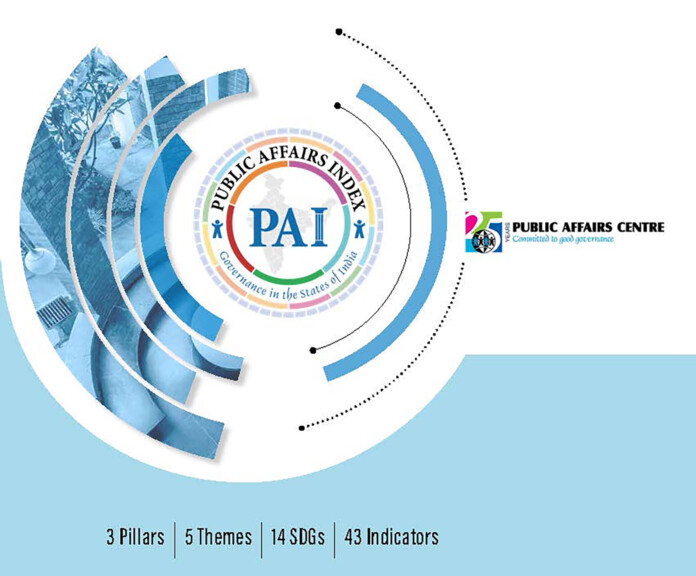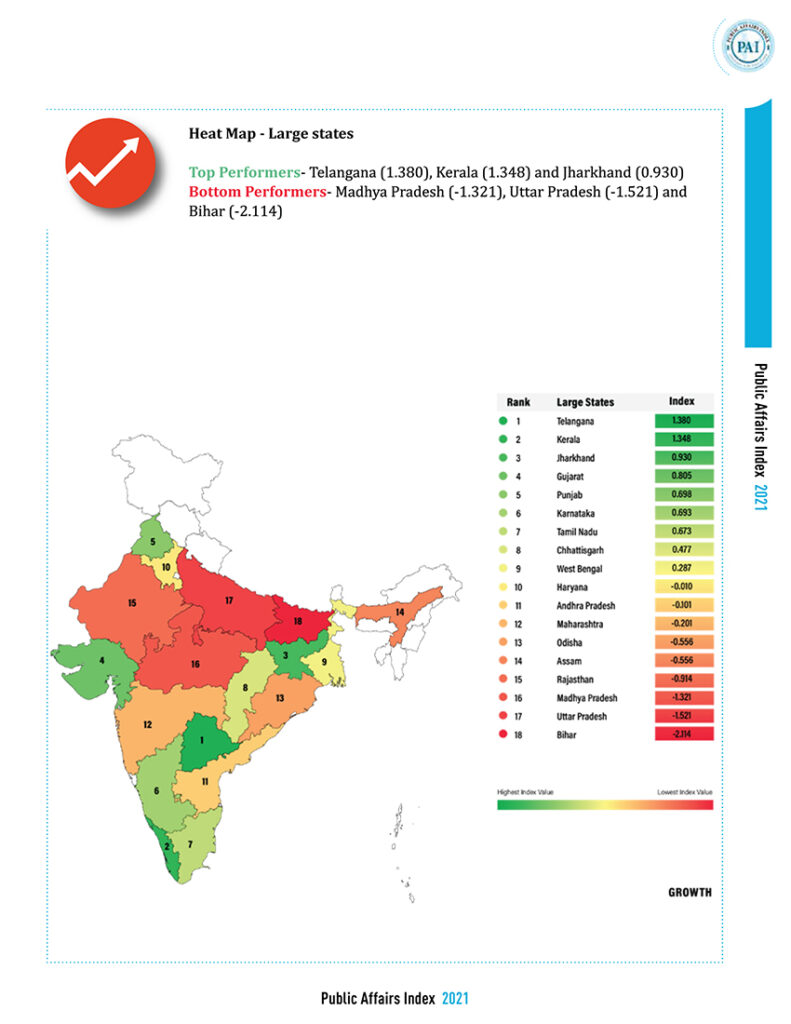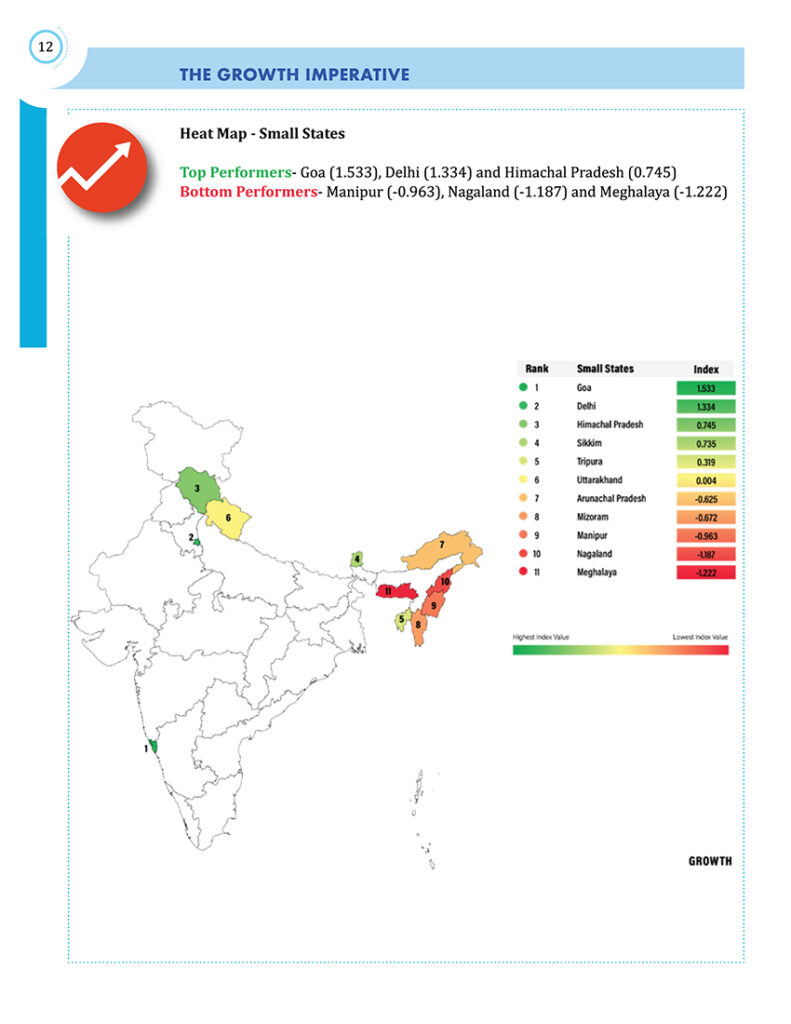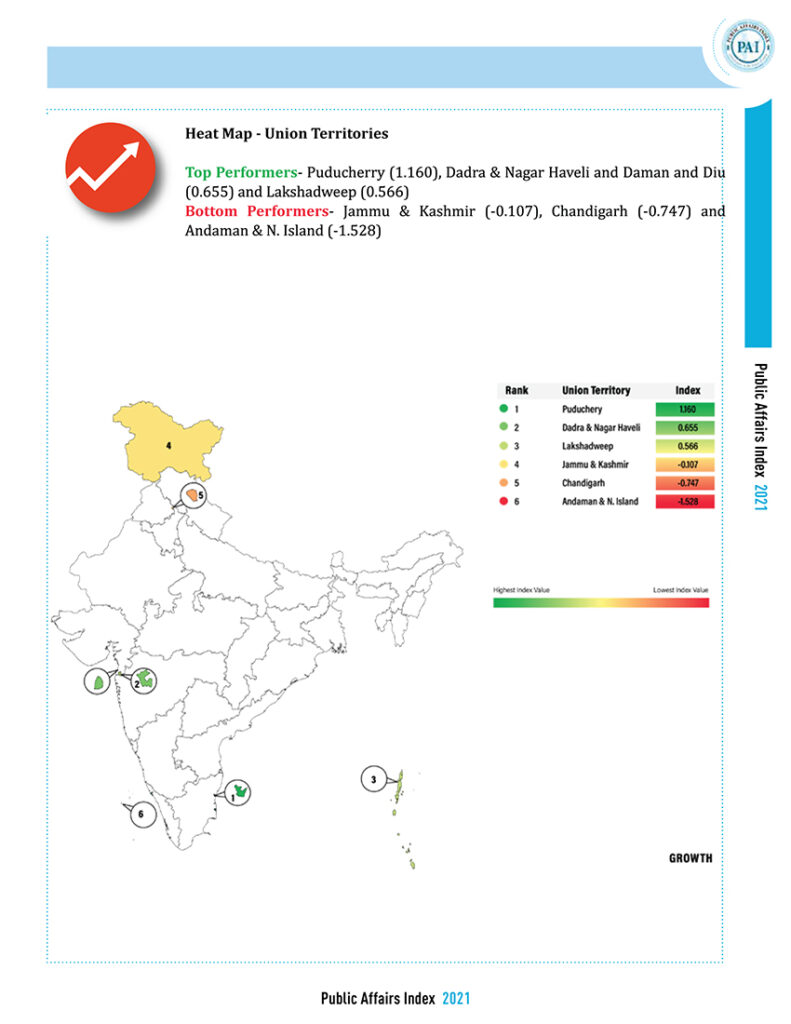The 2021 Sustainability Index of the Bengaluru-based Public Affairs Centre hasn’t thrown up any surprise compared to its scores in recent years. In its sixth edition, it has reinforced the fact that how States manage their 14 Sustainability Development Goals influences their overall governance rankings significantly.
In PAI 2021, PAC defined three significant pillars that embody Governance – Growth, Equity, and Sustainability. The Sustainability Pillar analyses the access to and usage of resources that has an impact on environment, economy and humankind. This pillar subsumes two themes and uses seven indicators to measure the effectiveness of government efforts with regard to Sustainability.
Key findings
- In the Large States category, the States positioned at 1st and 2nd rank are Kerala and Tamil Nadu, similar to last year.
- Chhattisgarh improved one place since last year.
- In line with the last year’s sustainability score is the performance of the bottom performers West Bengal at 16th, Bihar at 17th and Uttar Pradesh at 18th rank respectively
- In the Small States category, toppers are Mizoram, Arunachal Pradesh and Goa.
- States placed at the bottom are Manipur, Uttarakhand and Delhi.
- Toppers in the Union Territory (UT) category are Puducherry, Jammu and Kashmir, Andaman and Nicobar Islands. The bottom performer in is Lakshadweep.
The PAI report notes that Sustainability Pillar does impact significantly in rankings of the States, especially Large States where the correlation coefficients are evidently very highly positive. For States and UTs to attain holistic development, they need to ensure ease of living through keeping in check the pollution levels and also do not ignore the factor of cleanliness through solid waste management.
https://pacindia.org/wp-content/uploads/2021/10/PACPAI2021SR.pdf













